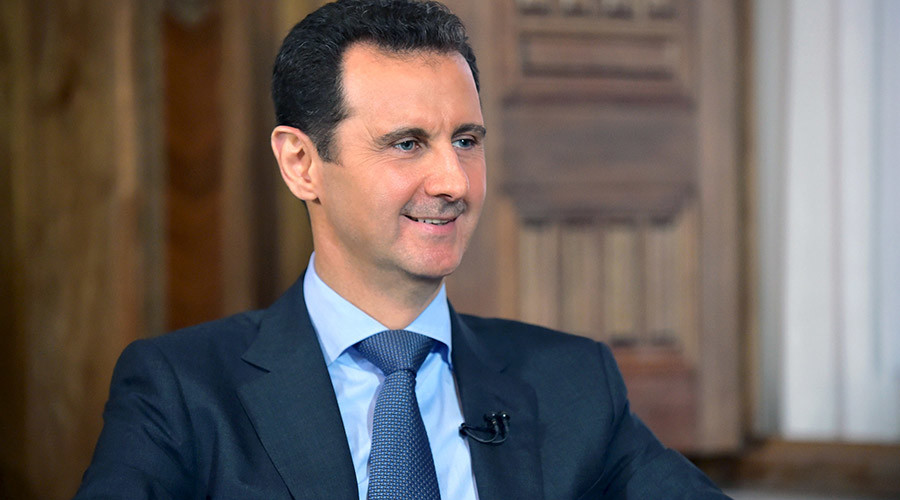"Da jeg mødte Præsident Assad, sammen med en gruppe australiere, så var hans manér helt i overensstemmelse med det præ-2011 billede af en godartet øjenlæge. Han udtrykte dyb bekymring for den indvirkning på børn som havde været øjenvidner til terror uhyrligheder mens fanatikere råbte 'Gud er stor.' Manden er helt klart ikke nogen hudløs børste a la Saddam Hussein eller George W. Bush, " understregede Anderson i sin artikel for Global Research.Hvis Bashar al-Assad virkelig var en brutal tyran, så ville han og hans hær været blevet forladt af syrerne og lidt nederlag for lang tid siden. Ifølge rapporter fra vestlige medier, så har præsident Assad, chefen for 'Alawi styret', lanceret gentagne bombninger af civile områder, gasset børn og slået hårdt ned på den fridomselskende "moderate" opposition.
"Centralt til Bashar myten er der to nært forbundne historier: den om de 'moderate oprørere' og historien som fremtryller 'Assad loyalister' eller 'regime styrker' istedet for en stor dedikeret national hær med en bred folkelig opbakning," siger Anderson videre.
Kommentar: Denne artikel er blot delvis oversat til dansk af sott.net fra:
Anti-Assad propaganda falls apart at the seams amid massive popular support among Syrians
Contrary to the Western media narrative, the Syrian Arab Army has much popular support. Furthermore, most of Syrians displaced by the conflict have not fled the country but moved to other parts of it under army protection, the Australian academic stressed, adding that numerous stories of the atrocities allegedly committed by the Syrian Arab Army turned out to be false. Even so-called "moderate" Syrian rebels recognized that the Syrian President and the government forces have about '70 percent' support, as quoted by Western media outlets. On the other hand, the Syrian Muslim Brotherhood and other sectarian Islamist groups do hate him, according to the academic.
"Quite a number of Syrians have criticized President Assad, but not in the manner of the Western media. Many in Syria regard him as too soft, leading to the name 'Mr. Soft Heart'," the academic remarked.Meanwhile, the so-called Free Syrian Army brigades, particularly that of Farouk, were spotted blowing up hospitals, conducting ethnic cleansing, killing Alawis and suppressing peaceful civilians. Needless to say, much of these atrocities were ignored by major Western media outlets or the blame was simply shifted onto Assad and the Syrian Arab Army.
"The most highly politicized atrocity was the chemical attack of August 2013, in the Eastern Ghouta region, just outside Damascus," Anderson proceeded with his narrative.While many Western mainstream media journalists, which relied on FSA sources, jumped to conclusions that Bashar al-Assad was behind the notorious chemical attack, a series of independent reports demolished those claims. Veteran US journalist Seymour Hersh later revealed that the US intelligence evidence had been fabricated and "cherry picked... to justify a strike against Assad," Anderson remarked, adding that "the Saudi backed FSA group Liwa al-Islam was most likely responsible for the chemical attack on Ghouta." The Australian academic underscored that during the Syrian presidential elections, held in June 2014, Assad received almost 88 percent of votes, despite the war. The high participation rate — 73 percent — also dealt a severe blow to the positions of Assad's antagonists.
"The size of Bashar's win underlines a stark reality: there never was a popular uprising against this man; and his popularity has grown," the academic stressed.




Kommentar: Se også:
The myth of 'moderate terrorists': Deconstructing the NATO narrative on Syria